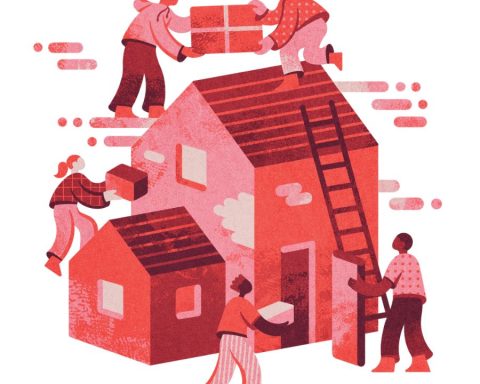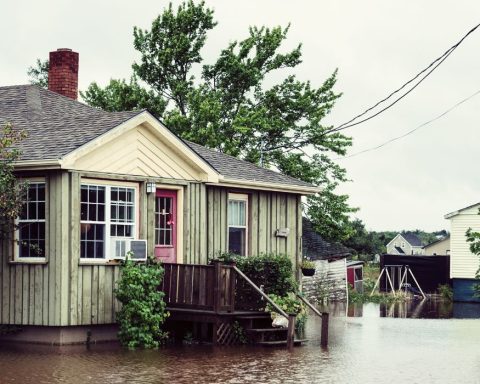In a survey released last fall, Savills, a British real estate services firm, warned that Europe could soon see a glut of fallow office buildings, many of them rendered undesirable by investors, lenders and tenants because they failed to meet new efficiency thresholds embedded in the Energy Performance of Buildings Directive (EPBD), a European Union climate policy that sets out minimum standards.
The EPBD dates to 2010 and has been updated several times in the European Parliament, including in late 2021. An even more ambitious set of net-zero standards was proposed in March 2023, all in the service of slashing emissions by 55% by 2030. A key piece of the new policy turned on establishing “minimum energy performance standards” and timelines for buildings across the EU, as well as targets that push upgrades in the least efficient structures.
However, delays in the adoption of these latest regulations – which aim to spur green renovations in the poorest-performing buildings, drive the take-up of heat pumps and ensure that all new buildings achieve net-zero by 2028 – have kindled concern among climate activists, who point out that 40% of all energy consumption and 36% of emissions in Europe are related to building operations and building materials.
The stalled process, moreover, is playing out amidst the so-called “boiler wars” in Germany – a reference to efforts to fully halt the use of fossil-fuel powered boilers as a source of space and water heating. Spurred on by the war in Ukraine, German regulators this week announced a deal to ban boilers beginning in 2024, a move that further underscores the delays in Brussels.
In response, a coalition of more than a dozen progressive businesses that participate in the Corporate Knights Global 100 council this week released a statement calling on the European Union to immediately take five critical steps:
- Approve ambitious minimum energy-performance standards.
- Deploy best-available energy-efficiency technologies, like heat pumps, to complement the uptake of renewables.
- Ensure that all new buildings are actually zero-emission structures.
- Ban fossil-fuel-powered boilers.
- Update energy performance certificates.
The group – which includes the Danish insulation giant Rockwool, IKEA and Schneider Electric – notes that the heavy use of natural gas for heating represents a crisis, both from a climate point of view and also economically, due to rising gas prices related to Russia’s invasion of Ukraine. “European consumers and companies are suffering from high energy prices,” the coalition said in a statement released this week. “Reducing their bills means eliminating losses to inefficiency, reducing both their consumption and overall scarcity.”
More than 50 global companies representing US$900 billion in revenues signed on to the Corporate Knights Action Declaration on climate policy engagement during COP27 in Egypt last fall.
A key question hanging over the EPBD implementation involves renovation, especially of older buildings, of which there’s no shortage across the EU. At the moment, only one-fifth of a percentage of buildings are renovated in the EU. To achieve the region’s 2030 timelines, that number will have to grow to 3%, equivalent to an estimated €275-billion outlay on renovations.
While those figures translate into enormous job-creation opportunities – the coalition estimates that every billion spent on construction translates into 19,000 long-term jobs – the goal remains daunting. Many jurisdictions have adopted voluntary energy-retrofit loan or grant programs, but take-up has been modest – in Canada, the Greener Homes program has attracted 170,000 applicants, a small figure given that the country has eight million homes; even if the program is fully subscribed, it would touch only 10% of all Canadian homes.
The exception is Italy, where a pandemic-era program provided subsidies exceeding the entire value of a retrofit. The offer, not surprisingly, was a big hit with homeowners and property managers and is expected to cut emissions from the least efficient buildings by 50%, as Corporate Knights reported last fall. The €44-billion initiative is now completely tapped out.
The Corporate Knights Action Declaration is also advocating that EU regulators accelerate the uptake of heat pumps using measures such as promoting a ban on the use of new fossil fuel boilers and closing a loophole that enables builders or renovators to install hybrid boilers or boilers that rely on renewable fuels, like biogas. “Electric heat pumps will always be more efficient and thus, in the long run, more affordable than burning renewable fuels,” the group’s statement says. “Waste heat re-use will also lower the demand of input energy needed to produce heat.”
With regulators in places like New York City and California really leaning in to building efficiency, fossil fuel reduction, and renewable-energy incentives, the EU’s climate policy institutions, so often lauded for their progressive outlook and green building practices, now find themselves in the unusual position of playing catch-up.







